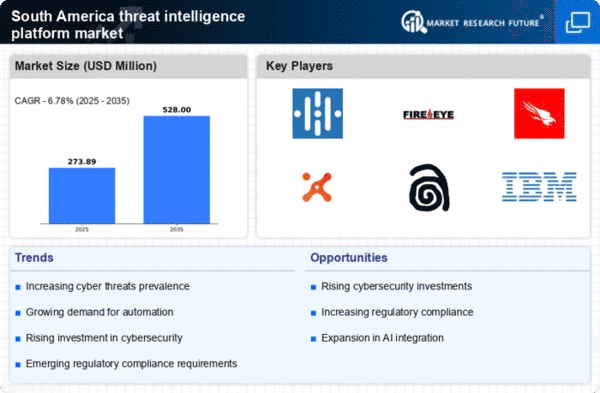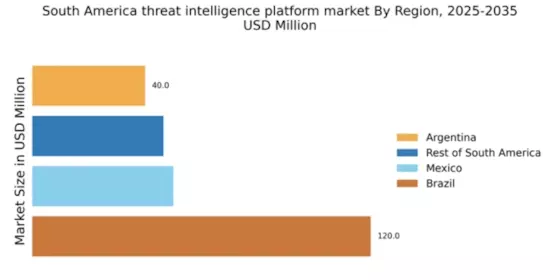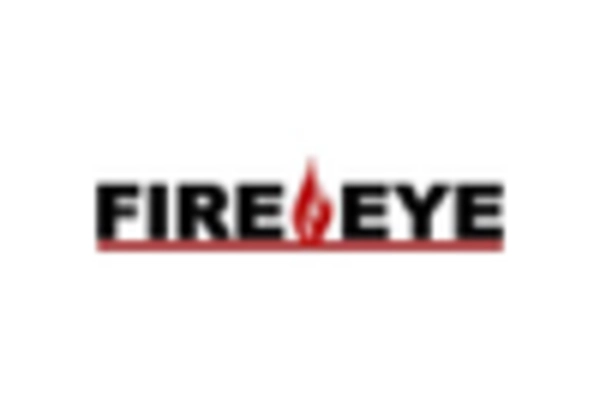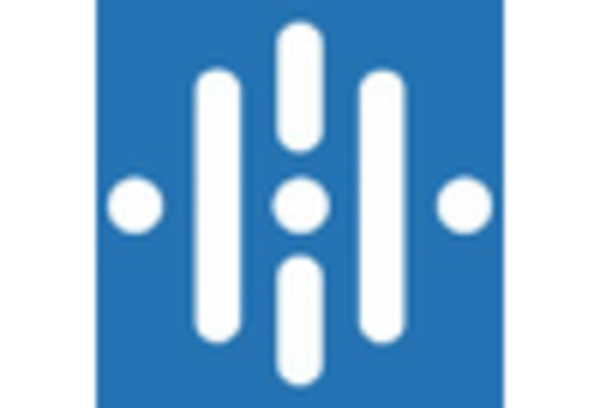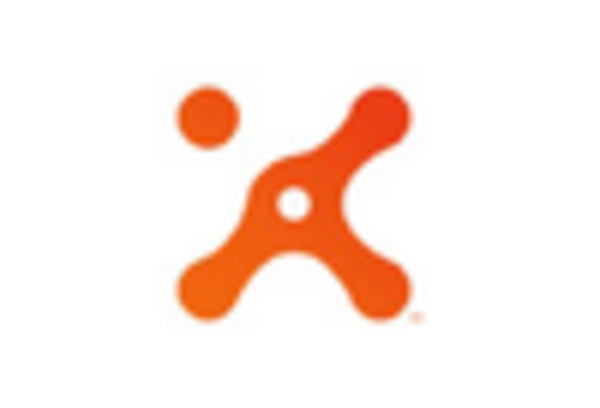Increasing Cyber Threats
The escalating frequency and sophistication of cyber threats in South America is a primary driver for the threat intelligence-platform market. Organizations are increasingly targeted by cybercriminals, leading to a heightened demand for advanced threat intelligence solutions. In 2025, it is estimated that cybercrime costs in the region could reach $30 billion, prompting businesses to invest in robust security measures. The threat intelligence-platform market is responding to this urgency by offering solutions that provide real-time threat data and analysis, enabling organizations to proactively defend against potential attacks. This trend is likely to continue as the digital landscape evolves, necessitating continuous updates and enhancements in threat intelligence capabilities.
Rising Demand for Data Privacy
The increasing emphasis on data privacy in South America is a significant driver for the threat intelligence-platform market. With the implementation of stricter data protection regulations, organizations are compelled to enhance their security measures to comply with legal requirements. The threat intelligence-platform market is witnessing a surge in demand for solutions that not only provide threat detection but also ensure data privacy and compliance. In 2025, it is anticipated that the market for data protection solutions will grow by 25%, reflecting the urgent need for organizations to safeguard sensitive information. This trend underscores the importance of integrating threat intelligence capabilities with data privacy measures to mitigate risks effectively.
Emergence of Advanced Technologies
The emergence of advanced technologies such as artificial intelligence and machine learning is reshaping the threat intelligence-platform market in South America. These technologies enable organizations to analyze vast amounts of data and identify potential threats more efficiently. As businesses increasingly adopt these technologies, the demand for sophisticated threat intelligence solutions is expected to rise. The threat intelligence-platform market is likely to see innovations that leverage AI and machine learning to enhance threat detection and response capabilities. This trend suggests a future where organizations can proactively address security challenges, thereby improving their resilience against cyber threats.
Growing Adoption of Cloud Services
The rapid adoption of cloud services in South America is significantly influencing the threat intelligence-platform market. As businesses migrate to cloud-based environments, they face new security challenges that necessitate the integration of threat intelligence solutions. In 2025, it is projected that cloud adoption in the region will exceed 70%, creating a substantial market for threat intelligence platforms that can secure these environments. The threat intelligence-platform market is adapting by offering solutions tailored to cloud security, ensuring that organizations can effectively monitor and respond to threats in real-time. This trend indicates a shift towards more comprehensive security strategies that encompass both on-premises and cloud infrastructures.
Government Initiatives for Cybersecurity
Governments across South America are recognizing the critical need for enhanced cybersecurity measures, which is driving the threat intelligence-platform market. Initiatives aimed at improving national cybersecurity frameworks are being implemented, with investments in technology and infrastructure. For instance, Brazil's government has allocated approximately $200 million to bolster its cybersecurity capabilities. Such governmental support not only fosters a conducive environment for the threat intelligence-platform market but also encourages public-private partnerships. This collaboration is expected to enhance the development and deployment of advanced threat intelligence solutions, ultimately improving the overall security posture of organizations within the region.


